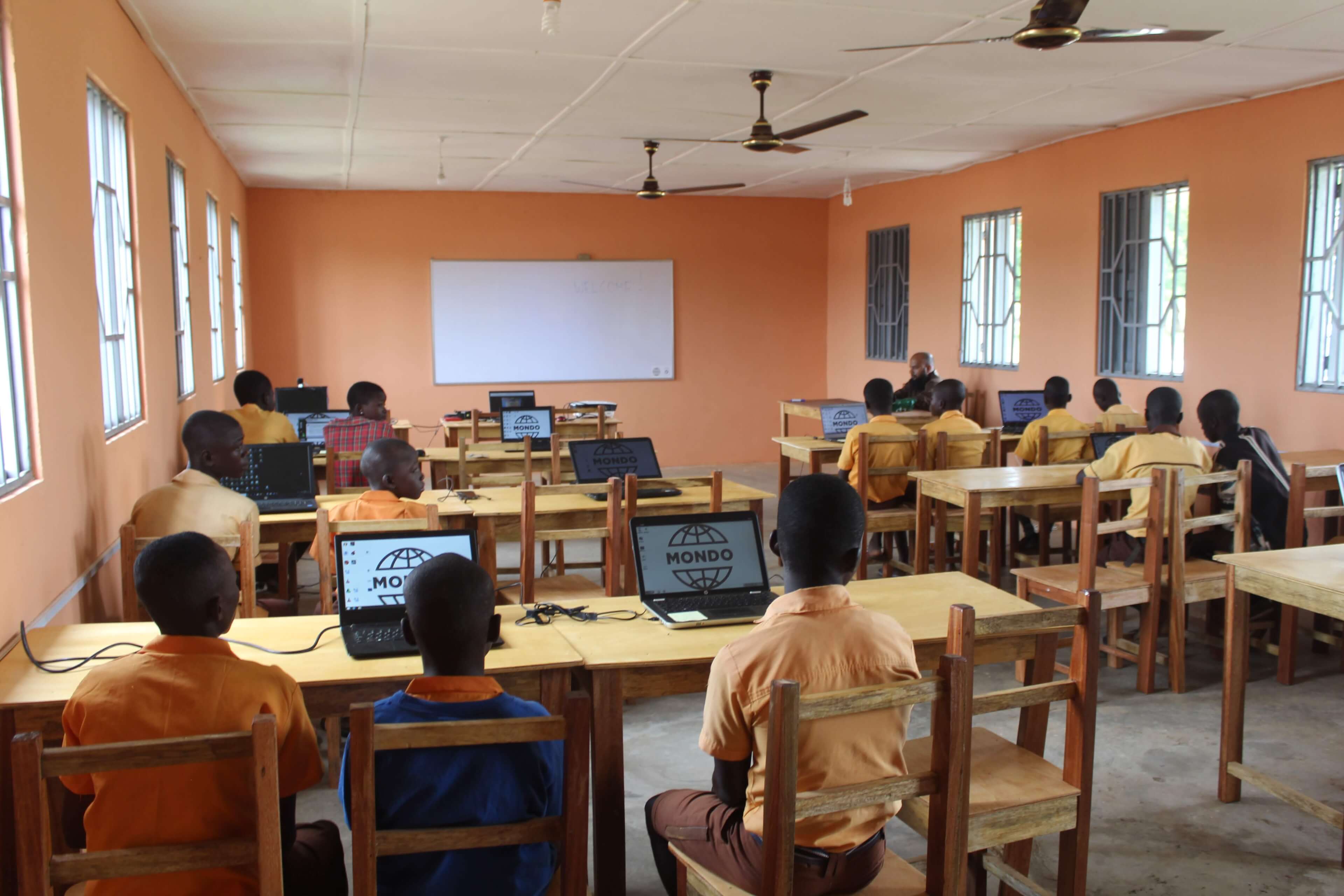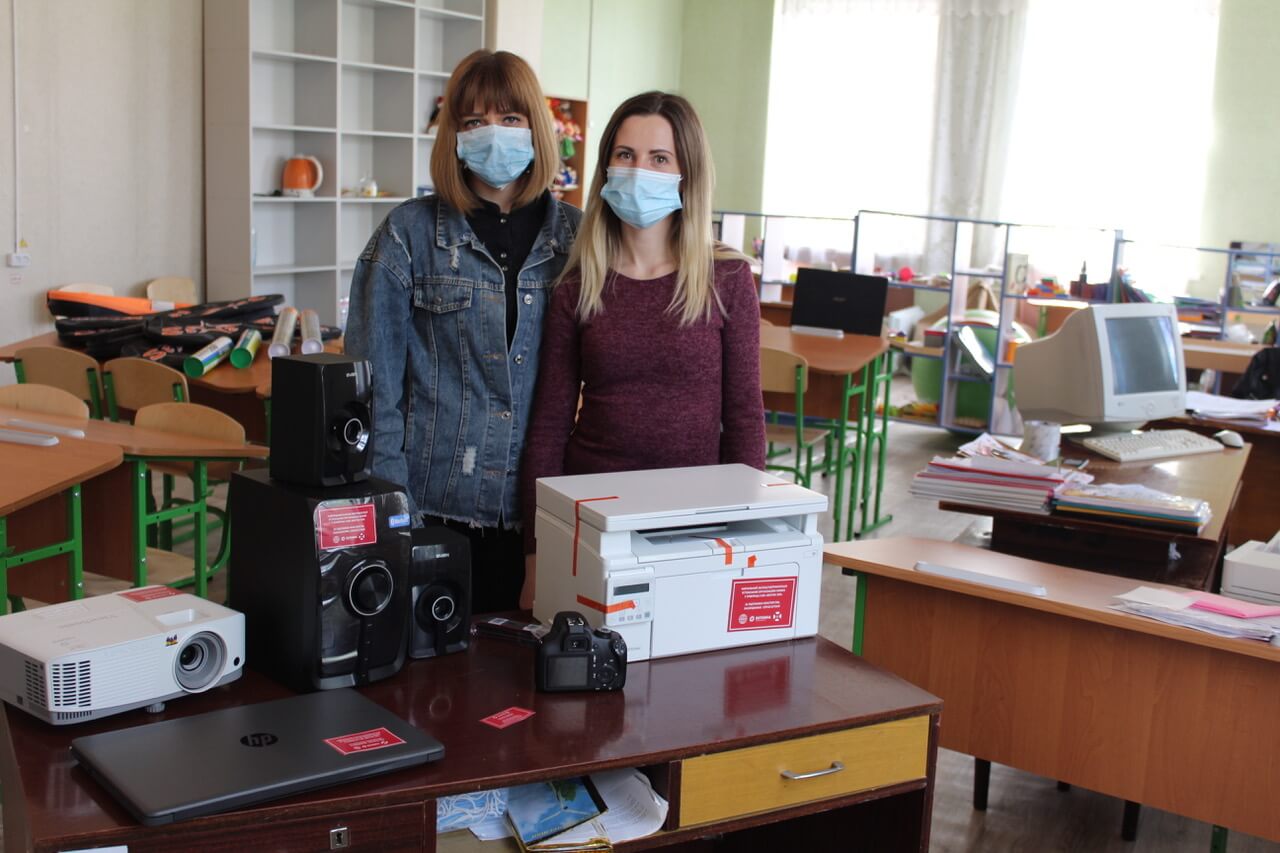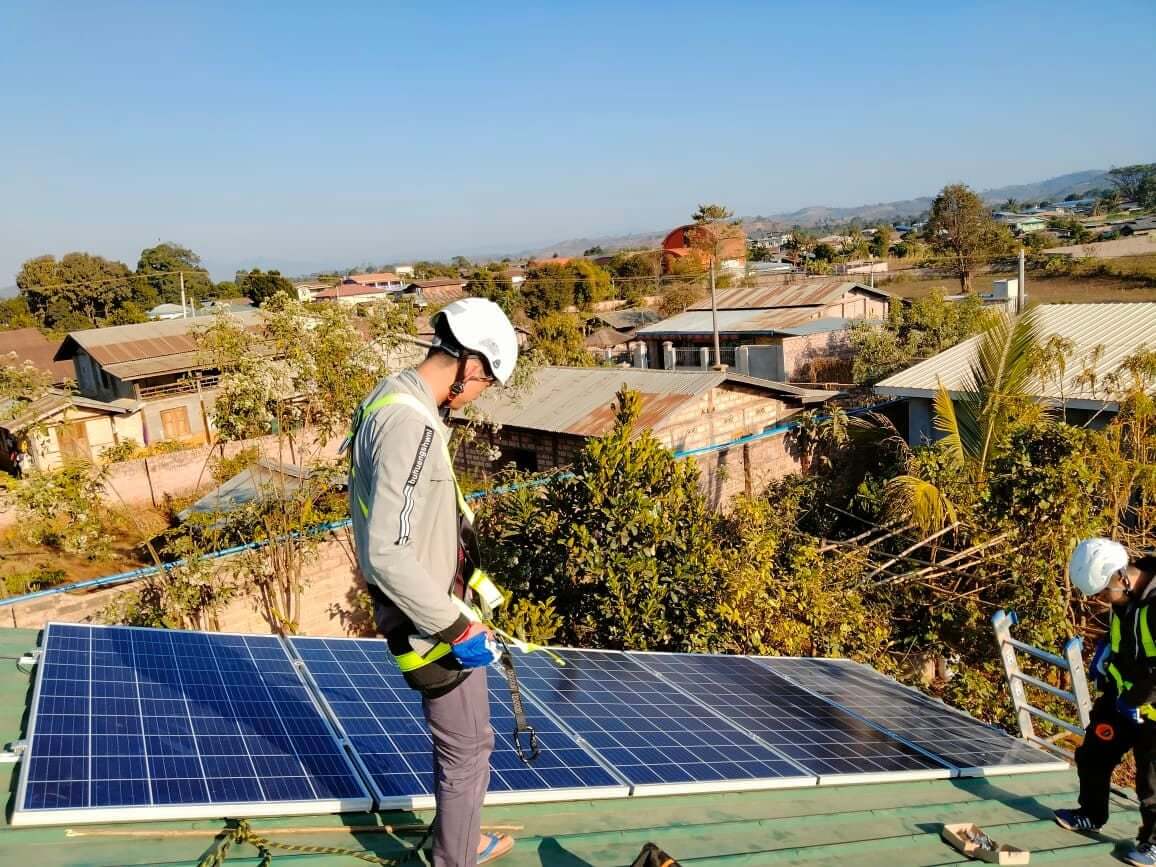Mondo conducts its activities in partner states and Estonia through five different programmes, focussing on communities and target groups with diminished opportunities—children, women, youth, refugees and the displaced.
- Through our education and health programme, we offer 450 children in Africa and Burma an opportunity to attend primary, secondary or vocational schools, as well as improve IT competence and health literacy.
- The livelihood programme offers skills training and continuing education courses for women and youth, and psychosocial counselling to crisis region residents, refugee families and domestic violence victims. In addition, we supply crisis regions with urgent humanitarian aid, if necessary.
- The digital competencies programme aims to reduce the digital gap and inequality in our partner states. We offer practical classes for increasing competitiveness on the job market or educational field, and develop computer classrooms, if necessary.
- Through the environment programme, we support communities in low-income countries in coping with climate change and aim to reduce the climate footprint of Mondo as an organisation.
- The global education programme aims to ensure that young people in Estonia grow into caring global citizens, and that the Estonian people support development cooperation and humanitarian aid.
EDUCATION AND HEALTH
WHAT IS THE ISSUE?
In Estonia, education is accessible to everyone. In the world, there are 258 million children who do not go to school; of those 59 million lack the opportunity of receiving primary education. There are many reasons for that: their family has no money to pay school fees, the school is too far and the road there is unsafe, schools have ceased to operate in crisis regions etc.
During the last two years, the Covid-19 pandemic has severely diminished access to education. However, education is one of the main keys to breaking out of poverty. The future salary of a girl attending school increases by 20% for each school year she completes. If all children of low-income countries were to obtain literacy, it would save 171 million people from poverty.
Access to healthcare and healthcare information is of equal importance to education. According to UNICEF, washing hands reduces the spread of preventable (and often deadly) diseases by 40%, but many rural areas lack the proper conditions for that.
WHAT DOES MONDO DO?
Mondo offers access to quality education, incl. appropriate further education, to children and youth from communities with fewer opportunities. We work to make sure they are healthy and supported in order to successfully complete their education, make an appropriate, context-based choice of profession or receive further training (such as digital competence or qualification training).
Mondo supports health education in its partner communities, offering support to local doctors and nurses by dispatching volunteer experts, spreading hygiene information and offering girls lectures on reproductive health.
EXAMPLES OF MONDO’S ACTIVITIES
Silja Mall, a Mondo volunteer, worked for a year as a geography teacher at a Congo village in Ghana. In addition, she raised the youth’s environmental awareness by organising garbage clean-up days.
Since 2009, Mondo has annually supported the primary, basic or secondary education of approximately 450 children in Ghana, Kenya, Uganda and Burma. These are the children that would not have been able to attend school for economic reasons without the support.
LivElihood
WHAT IS THE ISSUE?
What does livelihood mean for us? A person doing work that matches their capabilities and receiving fair pay for it, being able to eat a full meal, visit a doctor if necessary and send children to school is able to subsist. There are 700 million people in the world whose income is below 1.95 dollars per day. These people do not have the above-mentioned opportunities. According to the data of Statistics Estonia, an average Estonian earns over 26 euros per day. We have the power to contribute into reducing inequality and creating livelihood opportunities.
WHAT DOES MONDO DO?
Mondo offers varied support to target groups with fewer opportunities (rural women, youth, refugees, people with special needs) to help with their economic independence. We support women in cooperative activities and in the development of communal entrepreneurship.
Female empowerment and independent livelihood is also supported by Mondo’s subsidiary Mondo Crafts. Mondo focuses on women, since a woman invests 90% of her income into a family, whereas a man contributes 30–40%. Mondo works with local partners to also offer women, children and refugees psychosocial support services, aiming to support their mental health and therefore better livelihood.
EXAMPLES OF MONDO’S ACTIVITIES
The Yen Pang Basket Weavers association was created in 2014 in a Congo village, when Mondo offered the women the opportunity to learn basket-weaving. The association, originally started with eight women under a mango tree, has by now grown into an enterprise with 25–30 active weavers. Thanks to the funding from Mondo and Estonian development cooperation, they have been able to establish a small production and storage building.
They weave about 1,000 baskets per year, which go to clients in Estonia, Latvia, Canada and the US. About half of the weavers are widows, whose position in the society is low; the majority of the women are illiterate. Participation in the enterprise has provided them skills of running their own company and an important source of income to supplement smallholder agriculture.
DIGITAL COMPETENCE
WHAT IS THE ISSUE?
According to the data of Statistics Estonia, 90% of Estonia’s households had Internet access in 2019, and 98% of the population aged 16–44 use the Internet on a daily basis. In lower income countries, people’s access to the Internet is limited. According to OECD, 50% of the population in 37 African countries cannot afford 1 GB of data per month. In Africa, there is a huge gulf between urban and rural residents, where 47% of the former use the Internet on a regular basis, compared to only 26% of the latter.
Internet access has created a division in the society, which is contributing to a new type of segregation. The digital gap increases the already existing social, cultural and economic inequality. The ones caught on the “wrong side” of the digital gap (people with low income, less formal education, rural residents, the elderly and minorities) suffer from economic, social, health and political backwardness.
The digital gap limits the opportunities of succeeding on the job market and independent coping. The main problems are limited Internet access owing to the infrastructure and costs, and a lack of digital skills. The Covid-19 pandemic increased the digital gap both between and within countries.
WHAT DOES MONDO DO?
Mondo employs the unique digital experiences of both Estonia as well as other countries in humanitarian aid and development cooperation in order to reduce global inequality. Mondo has helped to found computer classrooms in its partner states and organises digital competence classes and further training courses in Uganda, Jordan, Syria, Kenya, Ukraine, Georgia, Yemen and Burma. Mondo’s digital competence courses offer practical knowledge and skills that foster the self-sufficiency of the participants.
In addition, we organise courses for educational workers in crisis areas and low-income states in order to raise their capability to hold remote lessons and foster a learning environment where the student is the guide and co-creator of the learning process.
EXAMPLES OF MONDO’S ACTIVITIES
Many schools in Ghana teach computer classes with chalk and blackboard. Students practice using a mouse by holding a stone. In September 2019, Mondo helped to open a computer classroom in Kongo village in Ghana.
The classroom has approximately twenty working computers, a projector and printer. It is attended by students from a number of regions, and also adult learners (if necessary), in order to obtain digital knowledge.
Read more on digital competence classes here mondo.org.ee/digipadevused


THE ENVIRONMENT
WHAT IS THE ISSUE?
Even though the impact of climate change can be felt all over the world, the people who suffer the most from it are the ones who already have fewer opportunities today. People living in the equatorial region, which includes several of Mondo’s partner communities, are especially hard struck—areas currently still inhabitable will soon be uninhabitable.
The World Health Organisation predicts that by 2030, climate change will lead to additional 250,000 deaths annually, mainly as a result of malnourishment, malaria, diarrhoea and heatstroke. Mondo values the concept of climate justice. Who is responsible and will pay when the ones who suffer the most have the smallest climate footprint? While the average annual carbon footprint of an Estonian is 14,192 kg CO2 equivalents, an average Kenyan’s is 379 kg. Therefore, the wasteful Western states must first significantly curb their own emissions and secondly direct support to lower income countries for adapting to the changes and dealing with the consequences.
Since we live in a world with limited resources, it is important to foster development in areas where the people’s basic needs are not yet covered. The rest of the world must opt for degrowth in order to make do with the existing resources.
WHAT DOES MONDO DO?
Mondo tries to increase its partner communities’ resilience to environmental crises by offering courses and renewable energy solutions. In addition, we raise people’s awareness and improve their skills on how to cope with the consequences of climate change. We also raise awareness of climate justice in Estonia and are consistently decreasing the carbon footprint of Mondo as an organisation.
READ MORE HERE https://mondo.org.ee/kliima
EXAMPLES OF MONDO’S ACTIVITIES
In Burma, we support the education of Shan children and youth, and the development of rural communities by installing solar power systems. Villages and communities that previously made do without electricity have simultaneously become stunted in their development due to this. Therefore, we support the development of communities with climate-friendly solutions and education for village children.


GLOBAL EDUCATION
WHAT IS GLOBAL EDUCATION?
Global education helps to share knowledge on how global issues affect the daily lives of individuals, communities and the society, and how each one of us can influence the world. In our interpretation, global education is the education of global citizens, peace, human rights, environmental and sustainable development. Global education can be provided starting from kindergarten up to secondary school, as well as in the format of informal education, and can be easily integrated with a number of subjects at school.
WHAT IS THE CURRENT SITUATION?
According to the PISA study published in 2020, 76% of Estonian students consider themselves global citizens. 51% think that their behaviour may influence people in other countries and 49.6% think that they can do something about the problems in the world. 58.1% of the students answered yes to the question “When I see the poor conditions that some people in the world live under, I feel a responsibility to do something about it”. All of these percentages fall below OECD’s average, which means we have room to grow.
WHAT DOES MONDO OFFER?
Mondo’s Global Education Centre organises global education activities that support schools, educational workers and the youth on discussing global topics. Mondo’s aim is to facilitate Estonian educational workers in gaining the knowledge, skills, modern methods and materials to integrate global education into their work and support children and youth in growing to be global citizens.
The Maailmakool.ee global education portal includes study materials, films, exhibitions, guest lectures and workshops that support students in analysing global topics. A global citizen knows their rights, obligations and potential, and undertakes informed and influential actions in the name of a just and sustainable world.


















